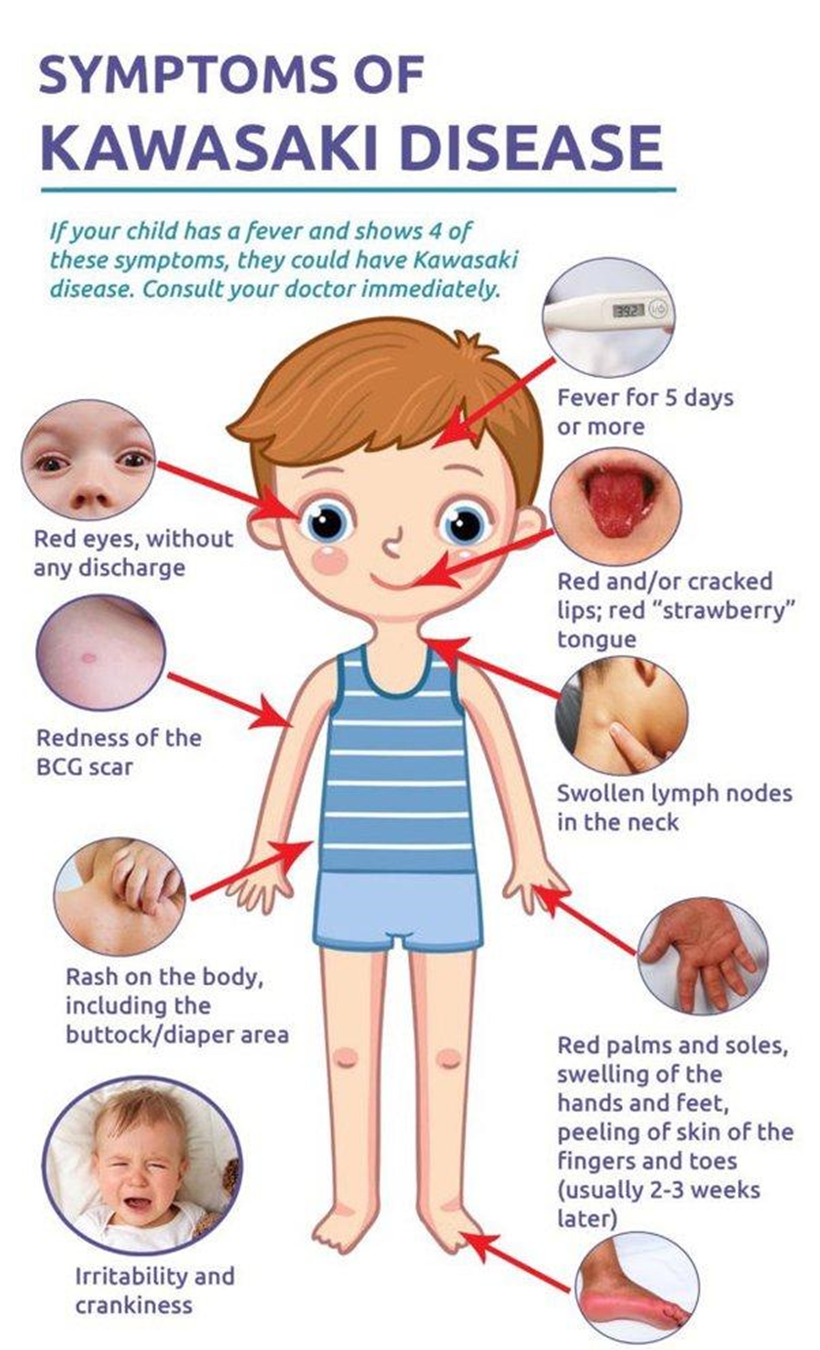On assessment of a child admitted with a diagnosis of acute-stage Kawasaki disease, the nurse expects to note which clinical manifestation of the acute stage of the disease?
Cracked lips
Desquamation of the skin
Normal appearance
Conjunctival hyperemia
The Correct Answer is D
A. Cracked lips:
Incorrect: While red, cracked lips are part of the mucous membrane changes seen in Kawasaki disease, they are not specific to the acute stage. Mucous membrane changes can occur in both the acute and subacute stages.
B. Desquamation of the skin:
Incorrect: Desquamation, or peeling of the skin, is more characteristic of the subacute or convalescent stages of Kawasaki disease, particularly on the fingers and toes.
C. Normal appearance:
Incorrect: In the acute stage, the child with Kawasaki disease typically exhibits signs of illness, including fever and other clinical manifestations. A "normal appearance" would not be expected in the acute stage.
D. Conjunctival hyperemia.
Explanation: Conjunctival hyperemia, or redness of the eyes, is a common clinical manifestation of the acute stage of Kawasaki disease. Other typical signs and symptoms during this stage include fever, mucous membrane changes (such as red, cracked lips), changes in the extremities, rash, and cervical lymphadenopathy.

Nursing Test Bank
Naxlex Comprehensive Predictor Exams
Related Questions
Correct Answer is C
Explanation
A. An infectious disease of the central nervous system
Explanation: Cerebral palsy is not caused by an infectious disease of the central nervous system. It is a non-progressive neurological disorder that arises from brain damage, often during prenatal development.
B. An inflammation of the brain as a result of a viral illness
Explanation: While inflammation of the brain due to a viral illness can lead to neurological complications, cerebral palsy is not specifically caused by inflammation resulting from a viral illness.
C. A chronic disability characterized by impaired muscle movement and posture
Explanation:
Cerebral palsy is a chronic condition that primarily affects motor function and posture. It results from damage to the developing brain, often occurring before or during birth. The impaired muscle movement and posture associated with cerebral palsy can lead to limitations in activities of daily living and mobility.
D. A congenital condition that results in moderate to severe intellectual disabilities
Explanation: Cerebral palsy primarily affects motor function, and intellectual disabilities are not an inherent component of cerebral palsy. While some individuals with cerebral palsy may have associated cognitive impairments, it is not a defining characteristic of the disorder.
Correct Answer is C
Explanation
A. That lethargy and vomiting are normal with mumps:
Incorrect: Lethargy and vomiting are not typical symptoms of mumps. These symptoms could indicate a separate issue that requires medical attention.
B. To continue to monitor the child:
Incorrect: Given the reported symptoms of lethargy and vomiting, a passive approach of continuing to monitor may delay necessary medical intervention. The child should be assessed promptly.
C. To bring the child to the clinic to be seen by the pediatrician:
Correct Answer: Lethargy and vomiting are not typical symptoms of uncomplicated mumps. These symptoms could be indicative of other issues, and it's important for the pediatrician to evaluate the child to determine the cause and provide appropriate care.
D. That there is nothing to be concerned about as long as there is no fever:
Incorrect: While fever is a common symptom of mumps, the absence of fever does not negate the need for further evaluation when there are concerning symptoms like lethargy and vomiting. The child should be seen by a healthcare provider to determine the cause of these symptoms.
Whether you are a student looking to ace your exams or a practicing nurse seeking to enhance your expertise , our nursing education contents will empower you with the confidence and competence to make a difference in the lives of patients and become a respected leader in the healthcare field.
Visit Naxlex, invest in your future and unlock endless possibilities with our unparalleled nursing education contents today
Report Wrong Answer on the Current Question
Do you disagree with the answer? If yes, what is your expected answer? Explain.
Kindly be descriptive with the issue you are facing.
